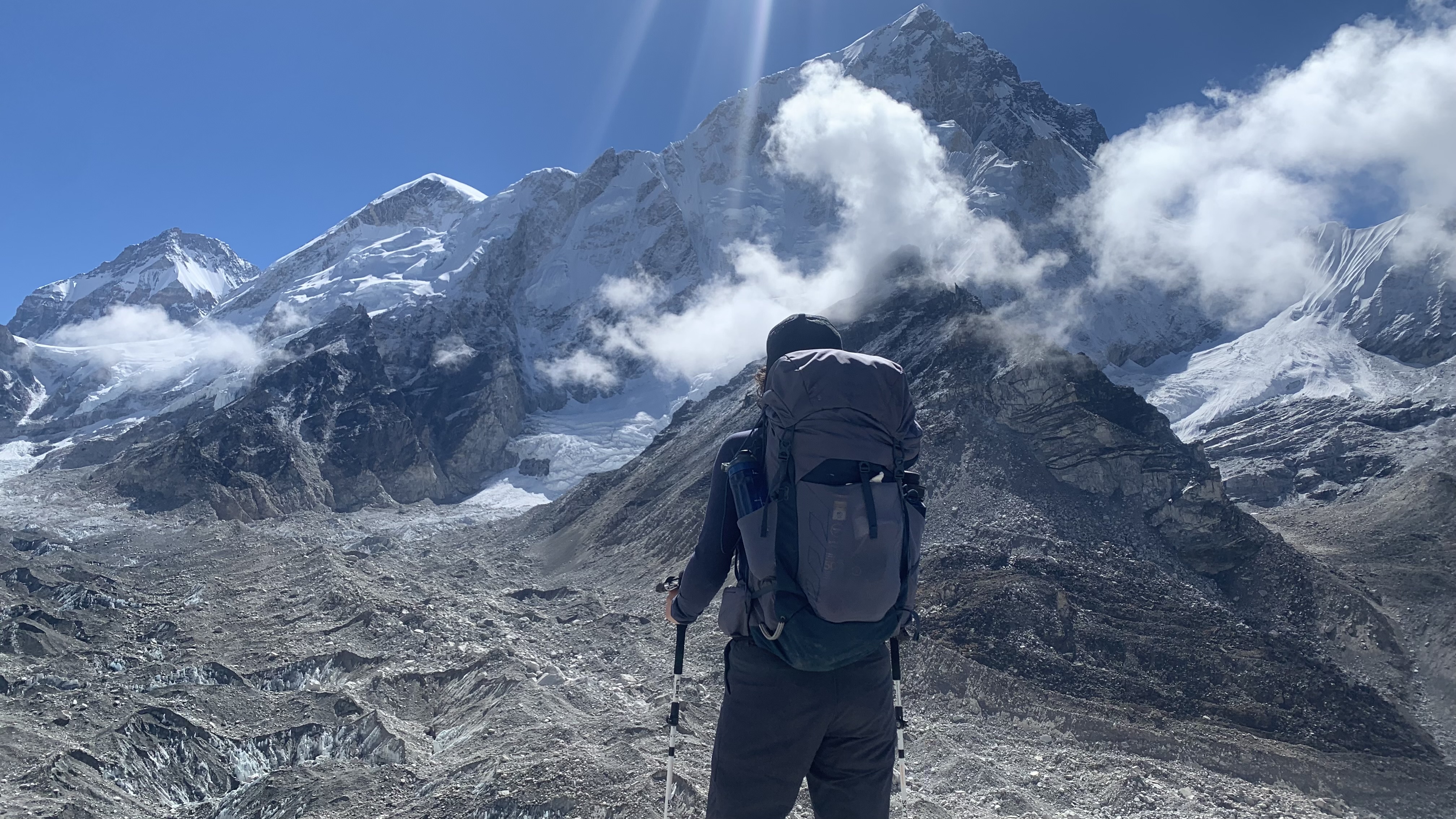Advnture Verdict
Fantastically featured, astonishingly comfortable, and adjustable – it's hard to find any fault at all with this women's backpack from the prestigious Colorado brand, which is perfect for short day hikes, long treks, and light and fast overnight adventures
Pros
- +
All-day comfort and breathability
- +
Lightweight
- +
Adjustable
- +
Great storage, including deep side pockets for water bottles
- +
Hydration bladder compatible
- +
Durable
- +
Bluesign approved
Cons
- -
No rain cover included
You can trust Advnture
Osprey Tempest 33 women's backpack: first impressions
A great backpack is as essential to a hiker as air to breathe, water to drink, and a trail underfoot – but finding the right model can be surprisingly challenging. We think we might have found the perfect one in the Osprey Tempest 33.
According to Osprey, this women's hiking backpack (the men's version is the Talon 33) is designed for adventurers who want a comfortable pack that works across different adventures, from day hiking to fast overnights and even skiing. That's a tall order, but after wearing this from the Himalayas to the Alps, I think they've come pretty close.
This backpack is astonishingly comfortable, even when worn all day for multiple days in a row, and Osprey says that's all down to the injection-molded AirScape backpanel, but I'm quite fond of the EVA foam lining in the straps and hip belt too. The suspension system provides a precise fit that you can fine-tune to your own specifications, which means it moves with you, and it's also super breathable on hot days.
All this means you can load it up with the gear you need for a day on the trail – or even a night in a backcountry hut – and trot off into the wild in total comfort.
• List price: $190 / £155
• Gender specification: Women's (men's version is the Talon)
• Sizes: One size
• Capacity: 33L
• Weight (S/M): 2lbs 10oz / 1.2kg
• Materials: bluesign approved 100% recycled 100D high-tenacity nylon w/ dobby check ripstop, DWR treatment made without PFAS
• Best use: Hiking, trekking, hut trips, short backpacking trips
Next up, let's talk storage. The main compartment is roomy and enhanced by various practical pockets including two stretchy mesh side pockets that hold large water bottles securely (though they're not that easy to reach while wearing the pack), two in the hip belt that fit an iPhone, a spacious top lid, hydration bladder pocket and an awesome stretchy mesh front pocket, where you can stuff waterproofs and maps.
It's also got all the attachment points for ice axes and folded trekking poles, meaning it's viable for winter and alpine adventures too. At 33L, it's big enough to squeeze in ultralight sleeping bags and pads if you must, but just small enough that you can cram it under the seat in front of you if you're flying budget and don't want to pay extra for overhead space.
While you can load it up with tons of gear, the pack itself won't weigh you down, weighing just 2lbs 10oz (1.19kg), which means you can pick up the pace with the Tempest, if you want to.
All the latest inspiration, tips and guides to help you plan your next Advnture!
Like most backpacks, it's not totally waterproof (though it will fend off a not-too-heavy shower), and I do wish it came with an integrated rain cover. But that aside, I think it lives up to the hype as one of the most comfortable, functional and versatile backpacks around, and it's Bluesign-approved to boot.
Osprey Tempest 33 women's backpack: in the field
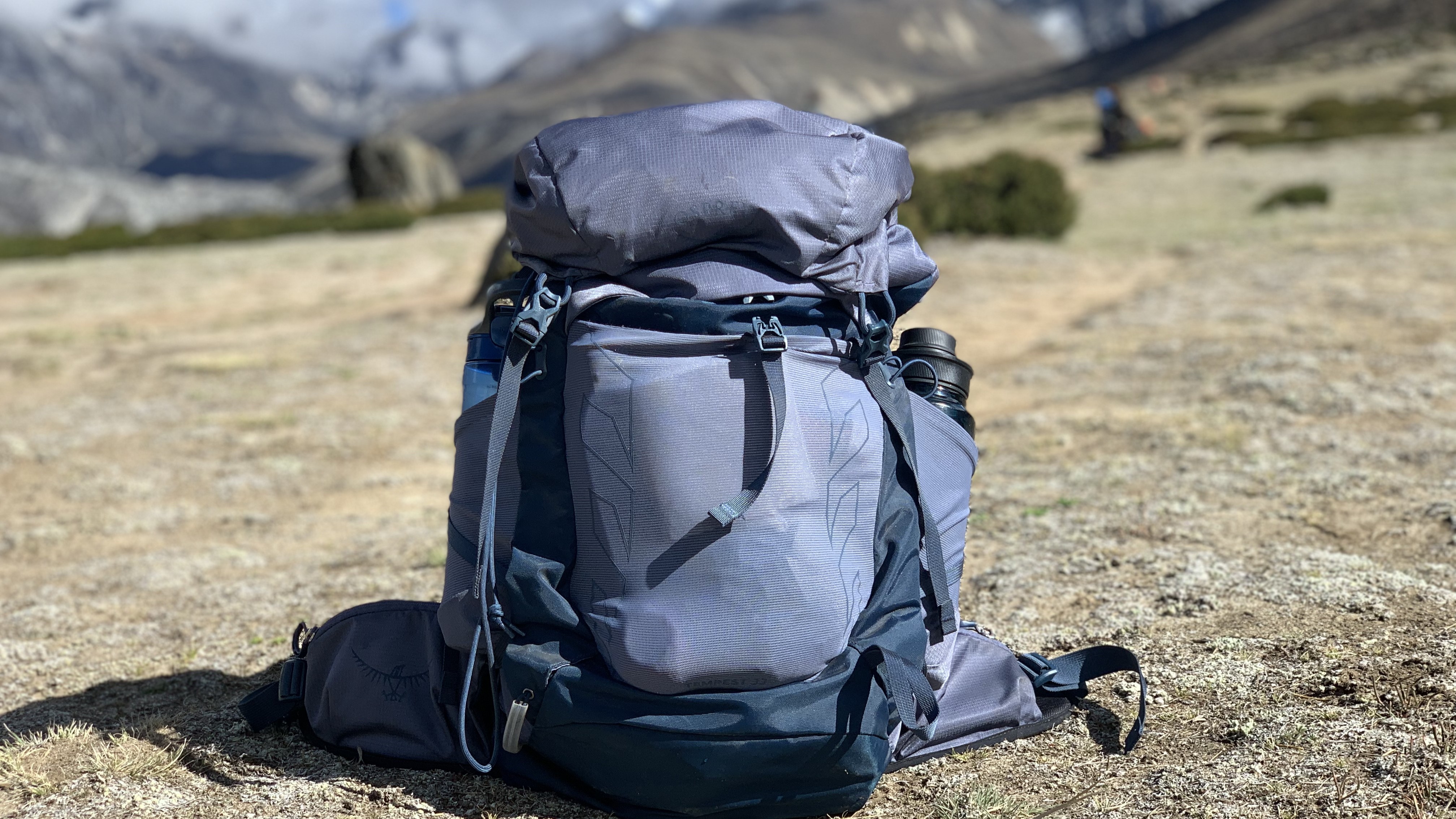
When I was offered the chance to trek over 11 days to Everest Base Camp, I soon learned, to my relief, that I wouldn't need to carry all of my gear on my back – porters would carry my extra clothes, sleeping bag, and toiletries in a duffel between stops. But I would need a 33L pack for all my day gear, and it needed to be comfortable enough to wear for at least six hours a day for 11 consecutive days. So I got my hands on the Osprey Tempest.
Fortunately, I got this backpack several months before my trip, so it ended up being my training pack for hundreds of miles in the Scottish Highlands, where I established it would be the right choice. And since my adventure in Nepal, I've taken it on a hiking and yoga retreat to a hut in the Swiss Alps and recently used it again on a five-day thru-hike in the Lake District National Park.
All this is to say, I've given this backpack a really solid test on trails across the globe, and I think I can confidently deliver my opinion now.
Here’s how it performed:
Sizing and fit
This backpack comes in one size, and usually I'd say that's a mark against it, but this one seems to be so adjustable as to accommodate nearly any torso. I say that because, while I'm on the smallish end at 5'4" and it fits me great, I've also made my 5'11" broad-shouldered boyfriend wear it for a hike, and he's done so in comfort.
Thanks to adjustable shoulder straps, hip belt, and a chest strap that can be moved up or down to get it out of the way, I had zero problems getting this cinched up nice and neatly. I wear it so it sits up on my hips to keep the weight totally off my shoulders and when I lean my head back, it rests on the top of the pack but the pack doesn't interfere with my ability to move my head.
I've had some issues with the shoulder straps on other packs being too close together so they dig into the sides of my neck, but these ones manage to be perfectly positioned. You can see from the photo below that it really contours to my body once it's on and fastened so it's very stable even when the ground beneath me is not.
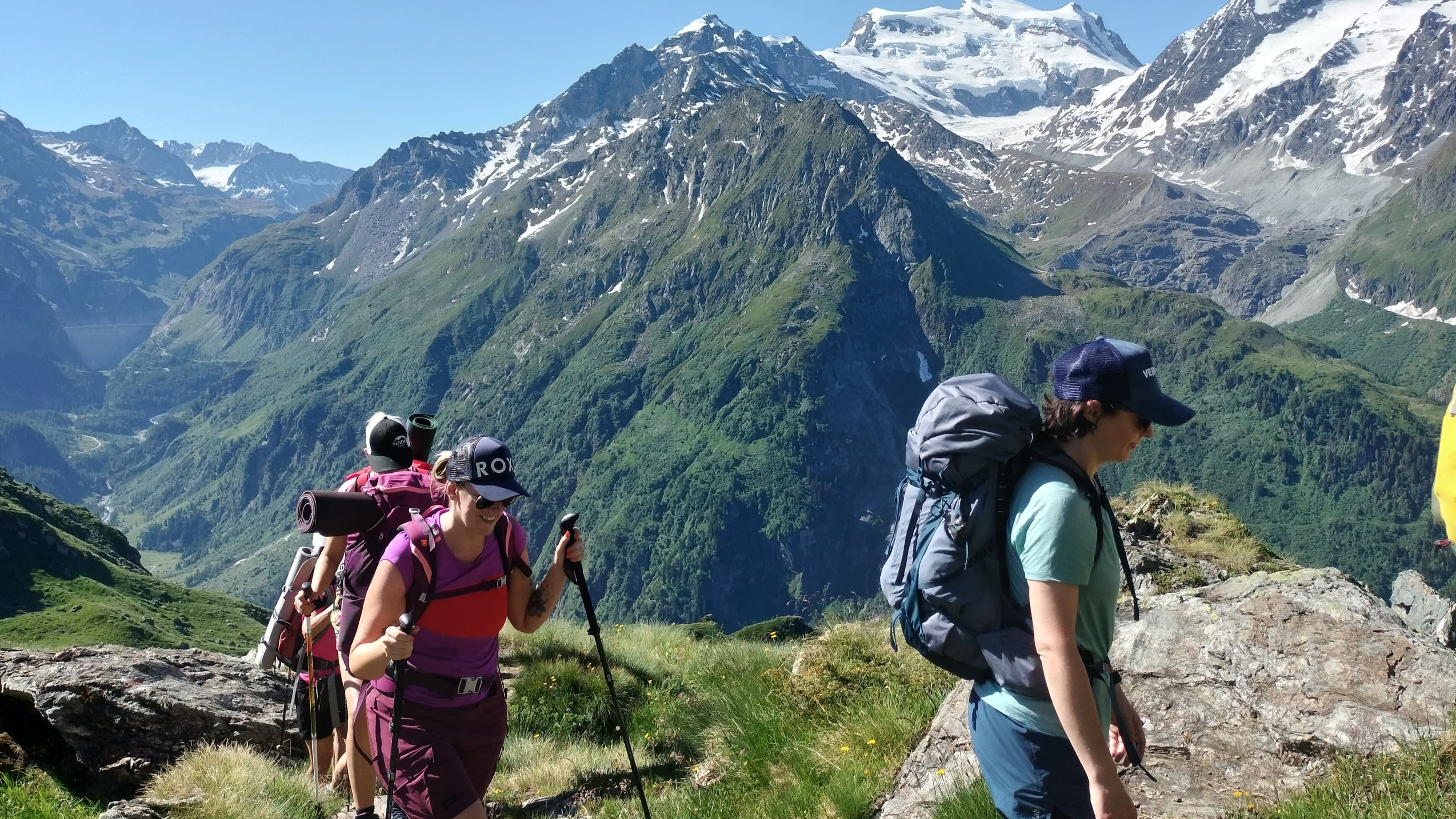
Comfort and breathability
The biggest selling point for this backpack is how incredibly comfortable it is. I'm definitely a little prone to bruising on my hips and collarbones from some backpacks, but I've never had any discomfort during (or after) wearing this pack, even after multiple consecutive days.
Basically, the design means that even when it's full, I don't notice it on my back, and when the trail requires more scrambling, it just moves with my body, so it never throws me off balance or gets in the way. Out of necessity (meaning, I lost track of time and needed to get down a mountain for dinner), I've even done a bit of trail running wearing it, and it actually handles a faster pace quite well.
I've also worn it on some pretty warm days, with temperatures reaching the 80s when I was in Switzerland. Of course, my back got sweaty, but I only noticed when I stopped and took my pack off. I'd say the back panel is as breathable as any I've tried.
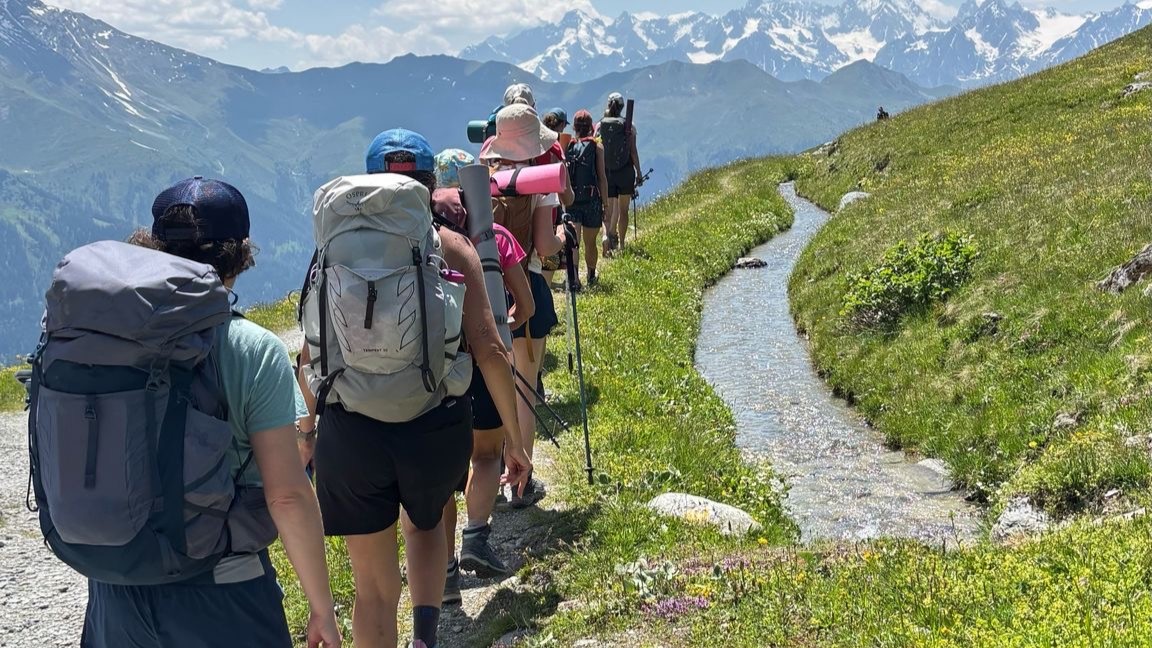
Storage and fastenings
Comfort might be key, but that's no good if you can't fit in all your gear, and a 33L pack can be a bit of an odd size. On the one hand, it can seem too big for a day hike, but on the other, it's not quite big enough for backpacking. However, I'd say this pack has the perfect amount of storage for most of my adventures.
I never run out of room on day hikes, even on the way to Base Camp where I was often carrying a lot of extra layers, multiple water bottles, and valuables that I'd been instructed not to leave in my duffel bag. That said, it has also proven to be big enough to fit my backpacking tent, lightest and smallest Therm-a-Rest pad, and camping quilt for an easy overnight.
There's not much to say about the main compartment except that it's spacious and functional, but it's all the extra pockets that give it added value for me. The lid has roomy pockets on the outside and inside, which can handle my wallet, keys (with clip), Garmin InReach, tissues, hand sanitizer, passport, and whatever I want close to hand. The side pockets are deep enough that my water bottles never fall out, but I admit I've only used the hydration bladder pouch for my laptop so far. The hip belt pockets can take my iPhone and portable charger, and I just love the front mesh pocket where I usually stuff my waterproof jacket, rain pants and map.
If it's not too full, there are plenty of compression straps to cinch it all tight so my gear isn't rattling around, and I've flown with it as my carry-on twice quite comfortable. While the overhead lockers just swallow it up, I've even managed to cram it under the seat in front of me so I had everything to hand on a shorter flight to Geneva.
The fastenings are all fairly straightforward, meaning plastic buckles, zippers and toggles, and that's a huge relief for me as I've found some modern backpacks so complicated I needed an instructional video just to figure out how to get them open.
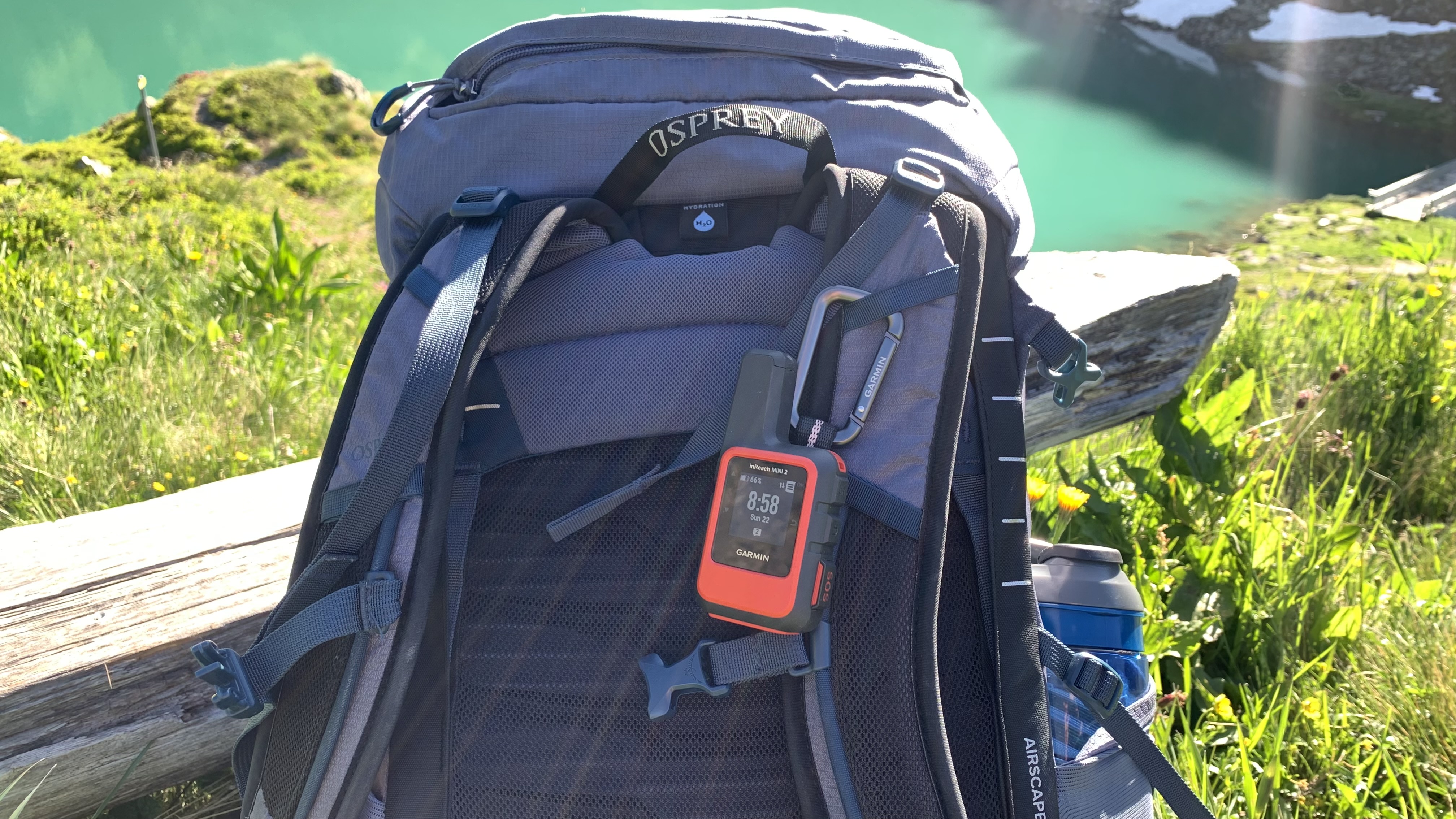
Durability and weather protection
I might only have been hiking with this pack for six months, but it's seen a lot of action. Hundreds of miles of hiking (and being thrown around on planes and dusty trails) and it's not showing any signs of wear and tear at all. I've been hiking with a smaller Osprey daypack since about 2009, and it's still in decent shape, so I'm hoping for similar robustness here.
Like most backpacks, it isn't waterproof (which is why it's so light), and that's not a problem. I've worn it in plenty of rainy weather, and my gear has remained dry. My only gripe is that it doesn't come with a rain cover, which almost everyone needs at some point. I bought an Osprey cover to go with it, but I'd rather they just built it in and adjust the price accordingly.
Also consider
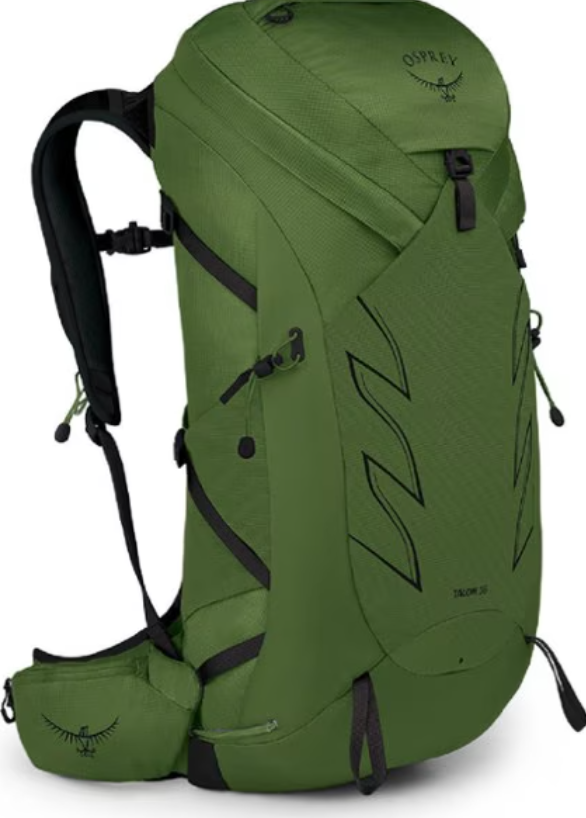
The Osprey Talon is the men's version of this pack, and every man I hiked to Base Camp with was using it. Like the Tempest, it's a bit of an anomally in that it seems to tick every boxy (except the rain cover box) for a comfortable carry with tons of thoughtful storage. It's made from the same premium materials and is the same price as the Tempest, but worth considering if you're unsure about the sizing and fit of the women's version.
Read our full Osprey Talon review.
Pros
- Perfect selection of pockets
- Comfortable, breathable back panel
- Seamless hip belt
Cons
- No rain cover
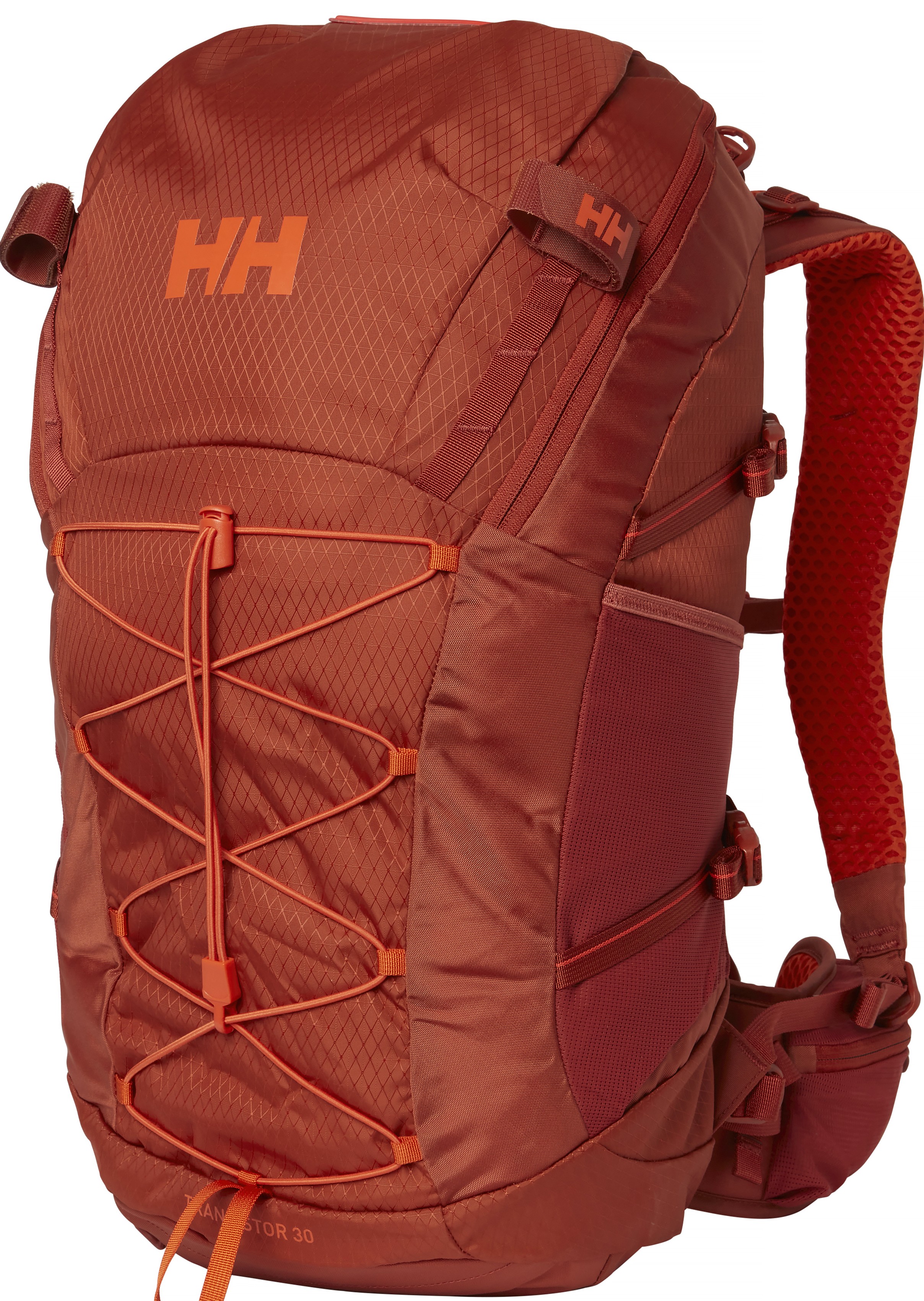
The Helly Hansen Transister comes pretty close to the Tempest in terms of comfort, and the storage is good if not quite as great. It's also been built to perform across a multitude of activities and does so quite well, whether you're hiking, trail running or skiing. It's a little cheaper, a little smaller, and worth trying on if you're looking for something multi-functional and comfortable, though it can be a bit of a pain to adjust in comparison. One area where it has an advantage over the Tempest is that it's fitted with a RECCO reflector, which could be an advantage for backcountry snow sports.
Pros
- Nice wide U-shaped top opening
- Excellent hip belts
- Versatile, with plenty of tool attachment hoops
- Good zips with glove-friendly loops
- Hydration bladder compatible
- Sternum strap has an emergency whistle
- Some versions have a Recco Reflector
Cons
- No external pockets on main bag
- Sternum strap fiddly to adjust
- No rain cover
- No women’s version
- No recycled content
- Pricey
Comparison table
Hiking boots | Osprey Tempest 33 | Osprey Talon 33 | Helly Hansen Transistor |
|---|---|---|---|
Price | $190 / £155 | $140 /£120 | $170 / £150 |
Sizes | O/S | O/S | O/S |
Weight | 2lbs 10oz / 1.2kg | 1lb 16oz / 900g | 1lb 11oz / 775g |
Best use | Hiking, trekking, hut trips, short backpacking trips | Hiking, trekking, hut trips, short backpacking trips | Day hiking, biking, running, scrambling, peak bagging, climbing and all sorts of one-day trail-based pursuits |
Julia Clarke is a staff writer for Advnture.com and the author of the book Restorative Yoga for Beginners. She loves to explore mountains on foot, bike, skis and belay and then recover on the the yoga mat. Julia graduated with a degree in journalism in 2004 and spent eight years working as a radio presenter in Kansas City, Vermont, Boston and New York City before discovering the joys of the Rocky Mountains. She then detoured west to Colorado and enjoyed 11 years teaching yoga in Vail before returning to her hometown of Glasgow, Scotland in 2020 to focus on family and writing.
